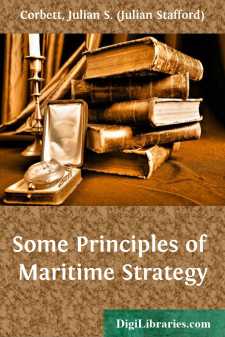Categories
- Antiques & Collectibles 13
- Architecture 36
- Art 48
- Bibles 22
- Biography & Autobiography 813
- Body, Mind & Spirit 142
- Business & Economics 28
- Children's Books 15
- Children's Fiction 12
- Computers 4
- Cooking 94
- Crafts & Hobbies 4
- Drama 346
- Education 46
- Family & Relationships 57
- Fiction 11828
- Games 19
- Gardening 17
- Health & Fitness 34
- History 1377
- House & Home 1
- Humor 147
- Juvenile Fiction 1873
- Juvenile Nonfiction 202
- Language Arts & Disciplines 88
- Law 16
- Literary Collections 686
- Literary Criticism 179
- Mathematics 13
- Medical 41
- Music 40
- Nature 179
- Non-Classifiable 1768
- Performing Arts 7
- Periodicals 1453
- Philosophy 64
- Photography 2
- Poetry 896
- Political Science 203
- Psychology 42
- Reference 154
- Religion 513
- Science 126
- Self-Help 84
- Social Science 81
- Sports & Recreation 34
- Study Aids 3
- Technology & Engineering 59
- Transportation 23
- Travel 463
- True Crime 29
Julian S. (Julian Stafford) Corbett
Julian Stafford Corbett (1854–1922) was a British naval historian and strategic theorist known for his influential works on maritime strategy. His most famous book, "Some Principles of Maritime Strategy" (1911), explored the role of sea power in warfare and the importance of controlling sea lines of communication. Corbett emphasized the integration of naval and land forces, challenging the earlier ideas of naval dominance espoused by Alfred Thayer Mahan. He also contributed to historical studies, including his multi-volume work "Official History of the Great War: Naval Operations," which documented British naval actions during World War I.
Author's Books:
Sort by:
INTRODUCTORY The following extract from the Espejo de Navegantes, or Seamen's Glass, of Alonso de Chaves serves to show the development which naval tactics had reached at the dawn of the sailing epoch. The treatise was apparently never published. It was discovered by Captain Fernandez Duro, the well-known historian of the Spanish navy, amongst the manuscripts in the library of the Academy of...
more...
INTRODUCTION The Theoretical Study of War—Its Use andLimitations At first sight nothing can appear more unpractical, less promising of useful result, than to approach the study of war with a theory. There seems indeed to be something essentially antagonistic between the habit of mind that seeks theoretical guidance and that which makes for the successful conduct of war. The conduct of war is so much...
more...



